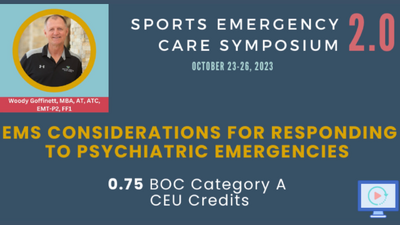General Course Information
Learning Material
45:00
AI Chat Bot
The chat bot may hallucinate. Please double check results.
EMS Considerations For Responding To Psychiatric Emergencies › Learning Material
Presentation (Video)
Updated Jan 22, 2024
Copyright © 2025 Action Medicine Consultants, LLC
___MESSAGE___
___MESSAGE___


